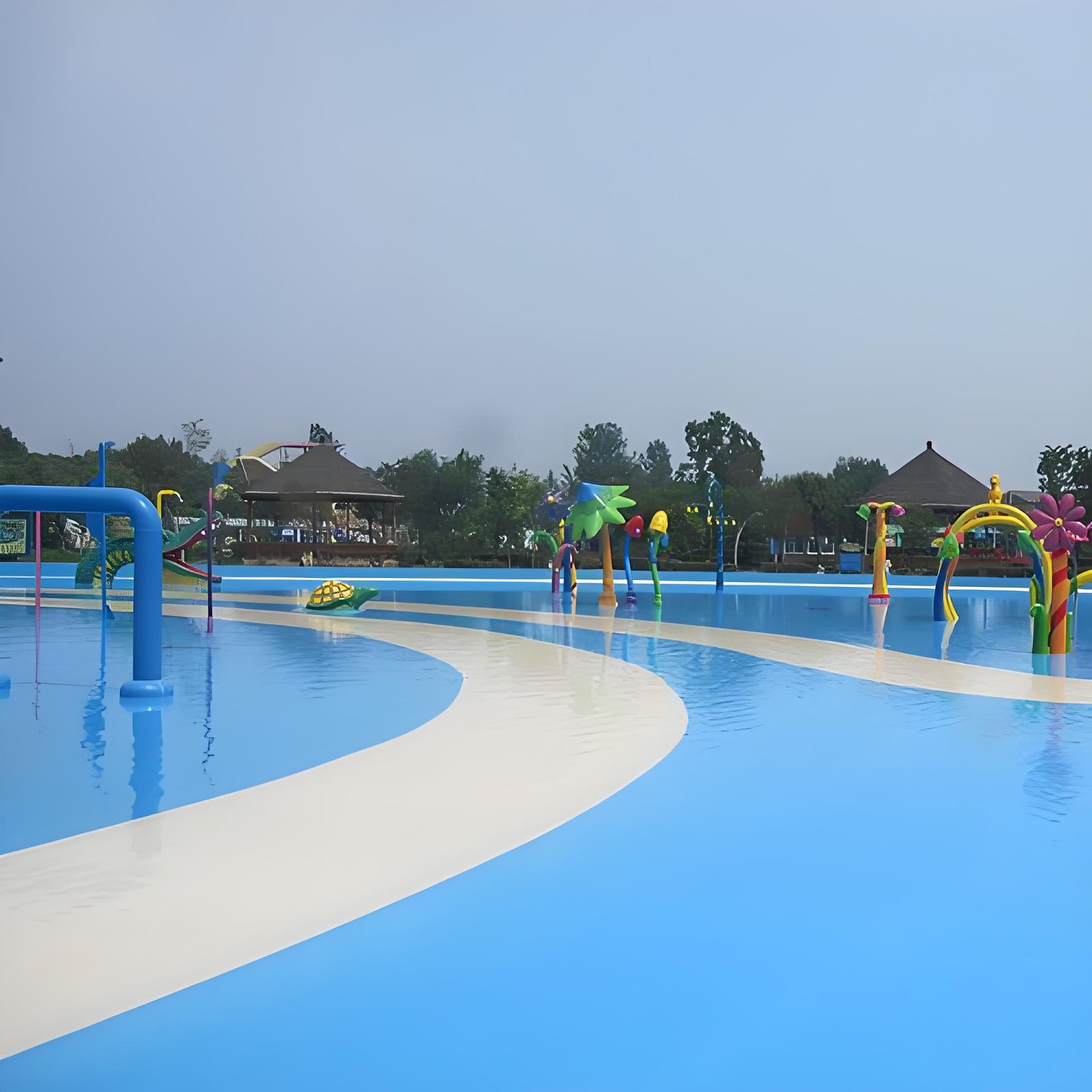
Introduction
When it comes to industrial and commercial coatings, the choice between polyurea and epoxy can significantly impact the durability, efficiency, and overall performance of your projects. Choosing the wrong coating might lead to costly repairs, downtime, and unsatisfied clients. Unfortunately, many still opt for traditional epoxy coatings without fully understanding the benefits of modern alternatives like polyurea. The key to making an informed decision lies in understanding the fundamental differences between these two types of coatings.
Polyurea vs. Epoxy: Key Differences
Polyurea coatings and epoxy coatings serve similar purposes but differ significantly in their properties and performance. Here’s a breakdown of how polyurea stands out:
-
Curing Speed: Epoxy coatings take days to cure fully, requiring extended downtime, which can be inconvenient in fast-paced environments. In contrast, polyurea coatings cure within hours, allowing for rapid project turnaround and minimizing disruption.
-
Weather Resistance: Epoxy coatings, while robust, suffer from poor UV resistance and can degrade under prolonged exposure to sunlight. Polyurea, however, offers superior weather resistance, including excellent UV stability, making it ideal for outdoor applications.
-
Chemical Resistance: While epoxy coatings provide good chemical resistance, they fall short compared to polyurea. Polyurea’s exceptional chemical resistance makes it suitable for environments exposed to harsh chemicals, ensuring long-lasting protection.
-
Environmental Impact: Epoxy coatings typically contain volatile organic compounds (VOCs), which can harm the environment and pose health risks during application. Polyurea is a 100% solids coating with no VOCs, offering a more environmentally friendly and safer alternative.
-
Flexibility and Elasticity: Epoxy is known for its hardness but lacks flexibility, making it prone to cracking under stress. Polyurea, with its high elasticity, can accommodate substrate movements, reducing the risk of cracks and ensuring a durable, seamless finish.
-
Ease of Application: Applying epoxy requires careful mixing and often a more complex process. Polyurea, on the other hand, can be applied directly through spray equipment, streamlining the application process and reducing labor costs.
-
Durability: Although epoxy is tough, it can become brittle over time and is susceptible to cracking. Polyurea’s unique combination of toughness and elasticity makes it resistant to abrasions, scratches, and wear, offering superior long-term durability.
Here is a comparison in tabular form:
| Characteristics | Epoxy Coatings | Polyurea Coatings |
|---|---|---|
| Curing Speed | Slow, usually takes several days to complete | Fast, can be completed within hours |
| Weather Resistance | Poor UV resistance, prone to degradation | Excellent UV resistance, highly weather-resistant |
| Chemical Resistance | Good but not as effective as polyurea | Excellent chemical resistance |
| Environmental Impact | Contains VOCs, environmentally unfriendly | 100% solids, no VOCs, environmentally friendly |
| Elasticity | Hard, low elasticity, prone to cracking | High elasticity, adapts to substrate movements |
| Ease of Application | Requires complex mixing and preparation | Easy application, can be sprayed directly |
| Durability | Tough but brittle, prone to cracking | Tough, elastic, resistant to abrasion and wear |
10 Applications of Polyurea Coatings
Polyurea coatings have proven their versatility across various industries, offering solutions where traditional coatings fall short. Here’s how polyurea coatings can be utilized effectively:
1. Swimming Pools
Polyurea coatings are ideal for swimming pools, providing a waterproof, corrosion-resistant barrier that ensures the longevity of the pool structure. They protect against chemical exposure, and their flexibility allows them to adapt to the pool’s movement, preventing cracks and leaks.
2. Residential Applications
In residential settings, polyurea coatings can be used as floor coatings and waterproofing materials. They offer a seamless, durable finish that enhances both the appearance and protection of floors, especially in basements and garages where moisture and heavy traffic are common.
3. Industrial Protection
Polyurea coatings protect industrial equipment and structures from harsh chemicals and corrosion. Their superior chemical resistance ensures that machinery and infrastructure remain intact and operational, even in the most challenging environments.
4. Industrial Flooring
In industrial settings, where floors endure heavy machinery and chemical spills, polyurea coatings provide a tough, chemical-resistant surface that is both durable and easy to clean. Their rapid curing time minimizes downtime, making them a cost-effective solution.
5. Commercial Flooring
Polyurea is perfect for commercial spaces like malls and supermarkets, where aesthetic appeal meets durability. These coatings enhance the visual appeal of floors while offering resistance to wear and tear, ensuring that high-traffic areas remain attractive and functional.
6. Garage Floors
Polyurea coatings protect garage floors from oil spills, chemicals, and physical damage. Their non-porous nature makes them easy to clean, while their durability ensures long-term protection against common garage hazards.
7. Schools
In educational facilities, polyurea coatings provide safe, durable surfaces for playgrounds and classroom floors. Their slip-resistant properties and resilience against wear make them ideal for environments frequented by children.
8. Hospitals
Hygiene is paramount in hospitals, and polyurea coatings contribute to maintaining sterile environments. These coatings provide seamless, easy-to-clean surfaces that resist bacterial growth, ensuring patient safety and compliance with health standards.
9. Airports
Polyurea coatings are used in airports for runways and tarmacs, where their durability and resistance to wear and tear are critical. They offer anti-slip properties and withstand the heavy loads and constant traffic typical in such environments.
10. Ports
In maritime environments, polyurea coatings are used on docks and cargo areas to protect against seawater and chemical spills. Their superior resistance to saltwater corrosion makes them indispensable for maintaining the integrity of port infrastructure.
Conclusion
Polyurea coatings are revolutionizing the coatings industry by offering unmatched performance across various applications. Their rapid curing times, superior chemical resistance, flexibility, and environmental benefits make them the go-to choice for projects where durability and efficiency are paramount. For distributors, contractors, and property owners, understanding these advantages is key to delivering high-quality results that stand the test of time. When you choose polyurea coatings, you’re not just investing in a product—you’re investing in long-term protection and peace of mind.
If you’re considering polyurea for your next project, MPU Coatings offers a range of specialized products designed to meet the unique demands of your application. Visit MPU Coatings for more information or to get in touch with our experts.




